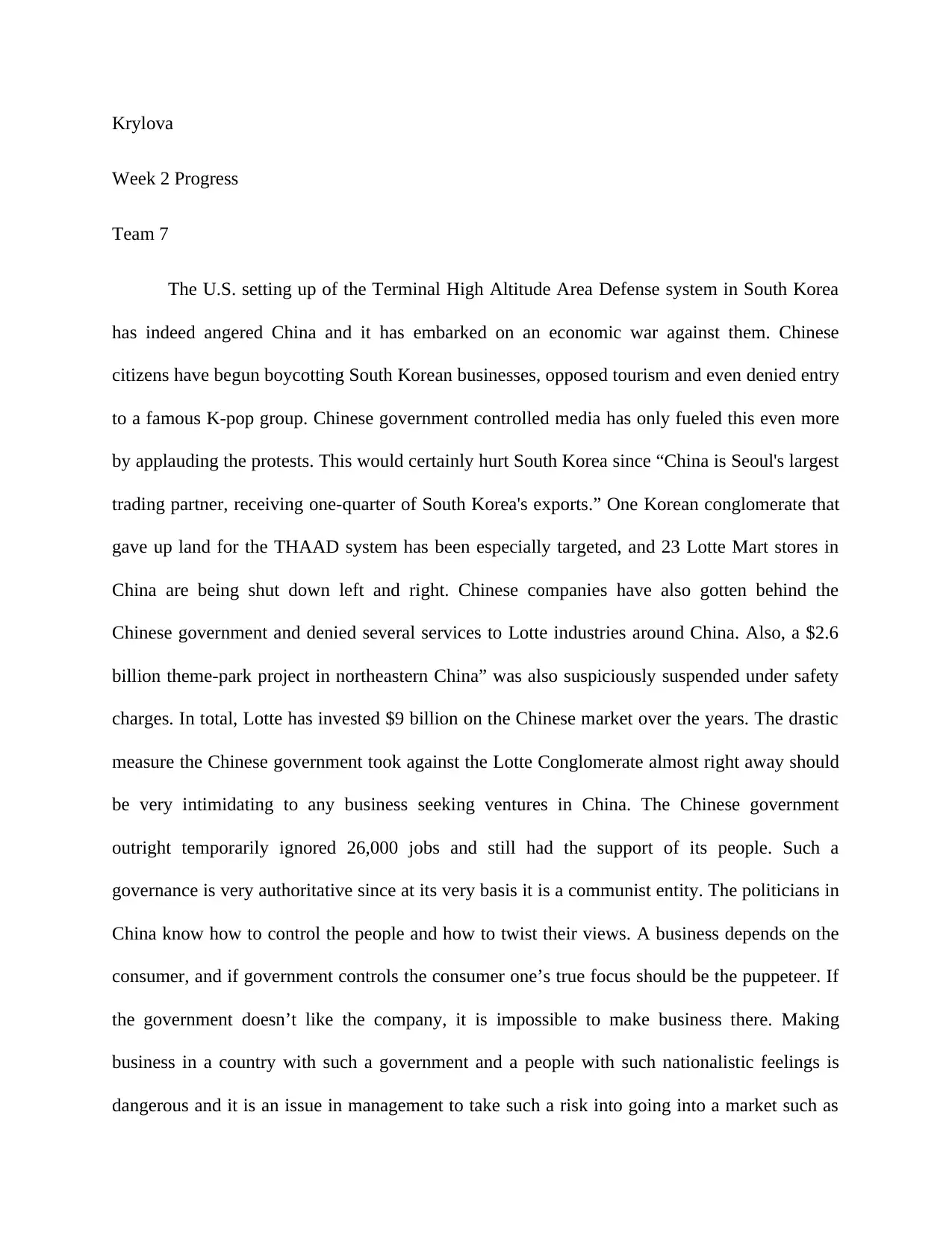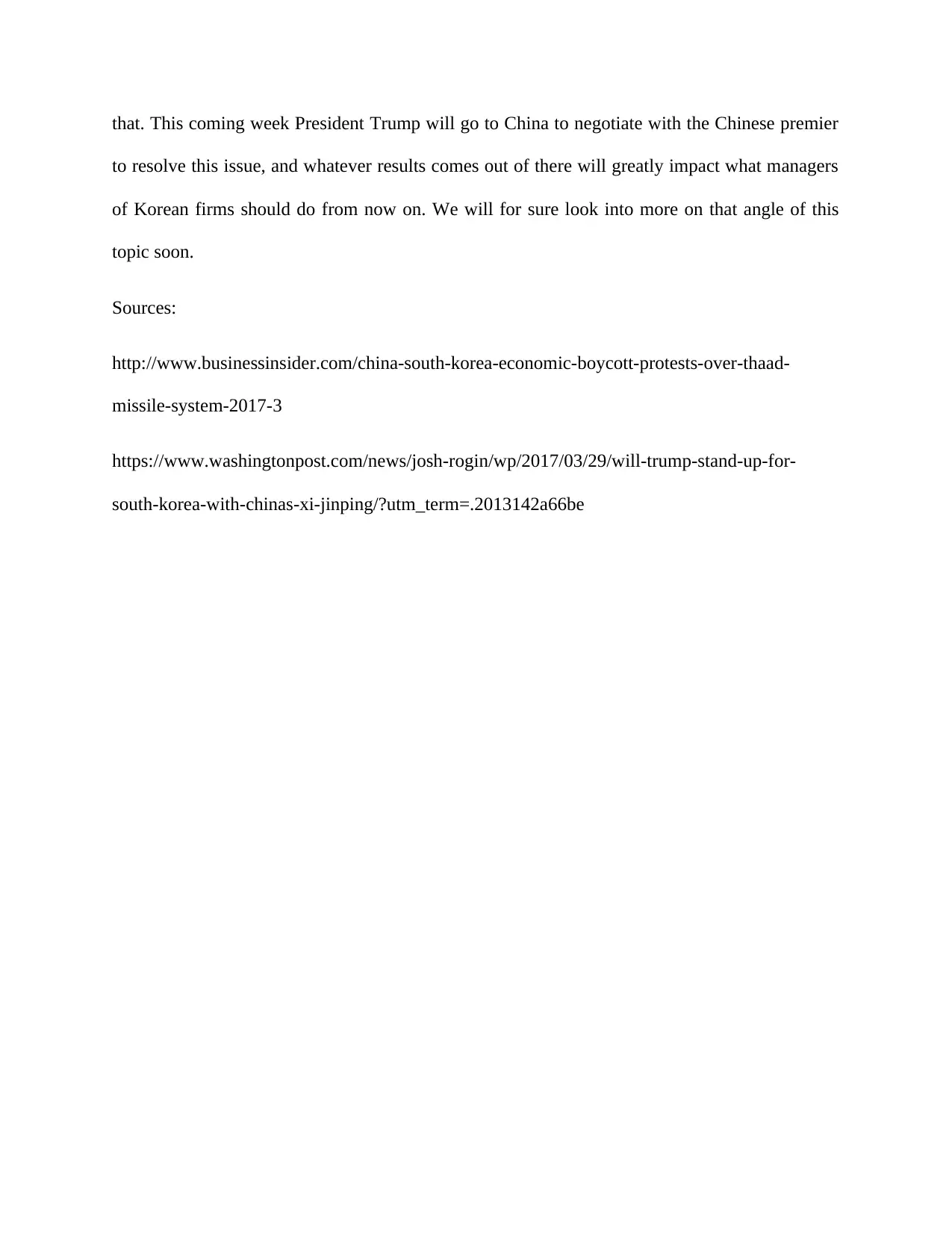The Economic and Political Fallout: China-South Korea Relations
VerifiedAdded on 2019/10/18
|2
|406
|271
Report
AI Summary
This report analyzes the economic and political tensions between China and South Korea, stemming from the deployment of the THAAD missile system. It details China's economic boycott, including consumer boycotts, government actions against South Korean businesses (especially Lotte), and the suspension of projects. The report emphasizes the significant impact on South Korean businesses and highlights the challenges of operating in a market with a government that controls consumer behavior and exhibits strong nationalism. The report also mentions the upcoming meeting between President Trump and the Chinese premier, emphasizing the importance of the outcome for Korean firms. This analysis provides valuable insights into the risks and complexities of international business and the impact of geopolitical events on economic relations.
1 out of 2








![[object Object]](/_next/static/media/star-bottom.7253800d.svg)